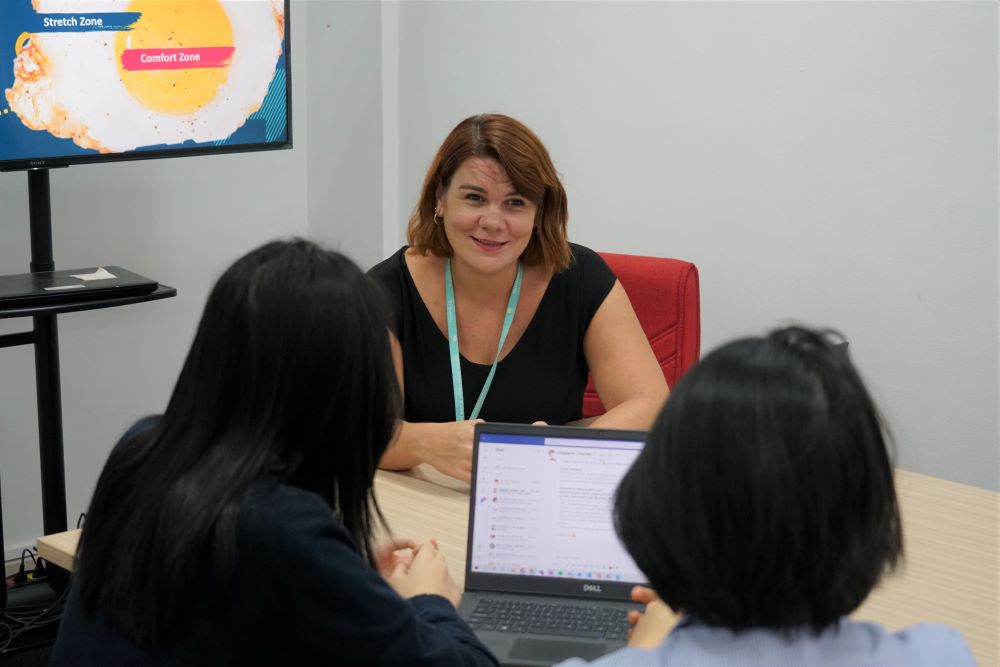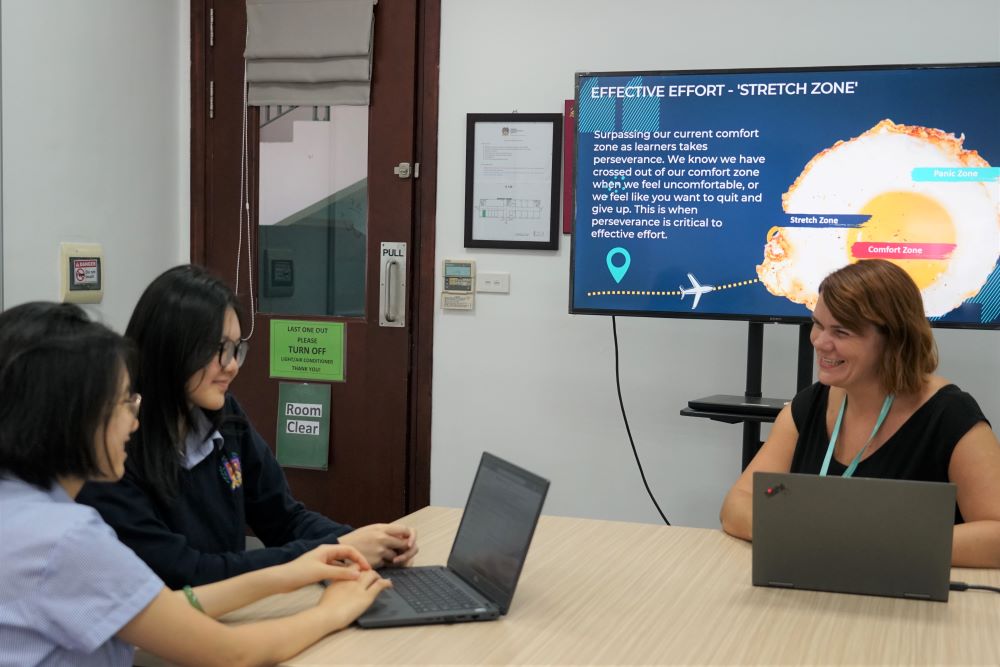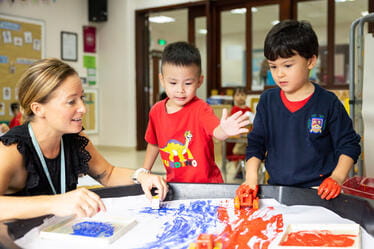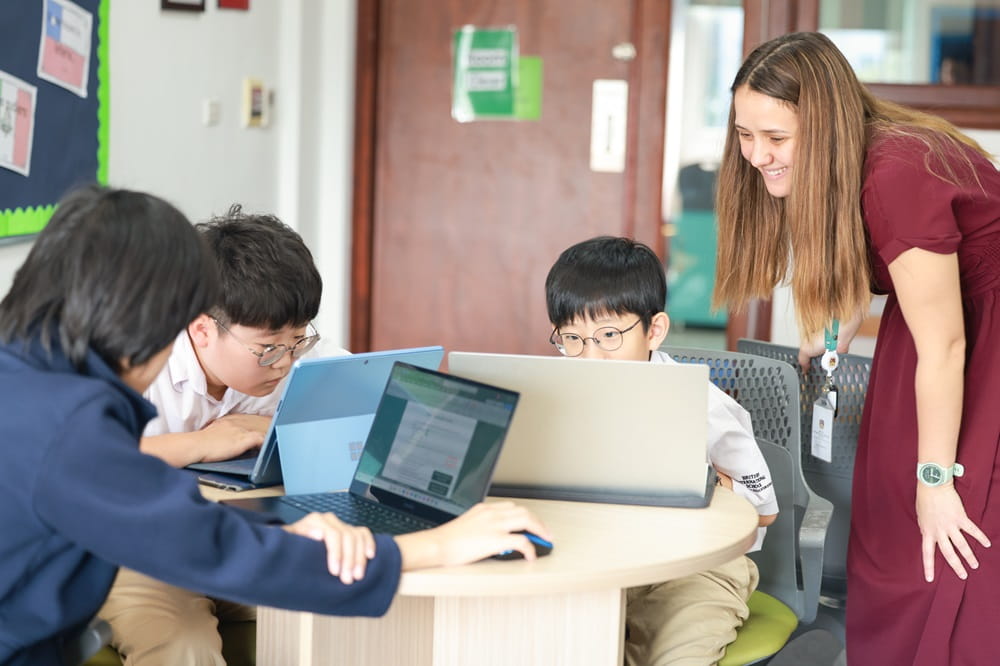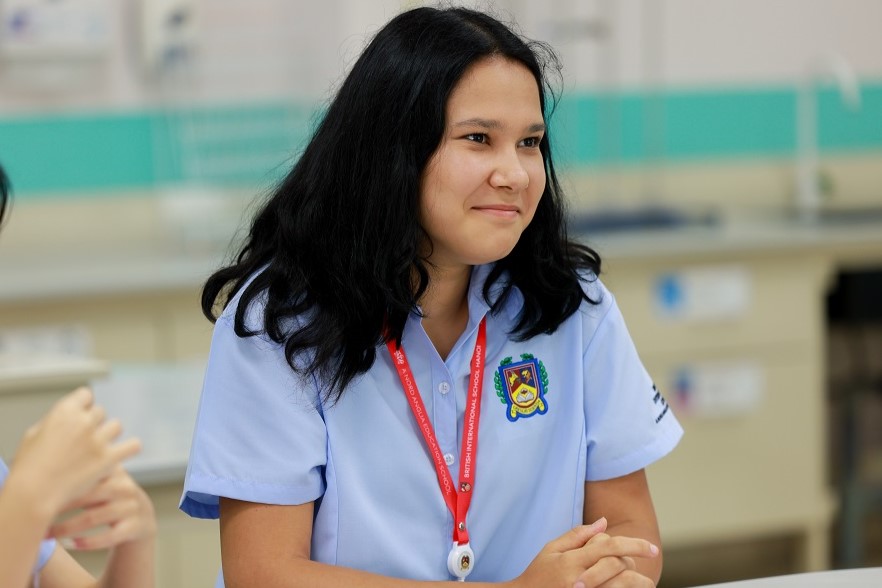T&L Committee: Why has the school put so much focus on ‘effort’ this academic year?
Miss Miller: Effort is an extremely important part of our work here at BIS Hanoi and we take the commitment to developing effective effort habits within our student body very seriously.
Students often associate effort with time, but effort is not measured in time units! The definition of effort refers to it being a ‘vigorous or determined attempt.’ Effort isn’t always about how hard you are working; it’s about how effectively you are working.
For example, spending five hours revising for a test or creating a beautiful piece of work isn’t necessarily a good use of your time, if you haven’t learnt something new and ensured that this new information has stuck.
Good schools prioritise celebrating the right ‘type’ of effort.
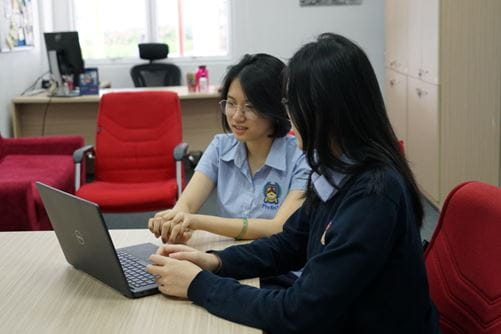
T&L Committee: How has the school changed how it measures and celebrates effort?
Miss Miller: We created an ‘Effective Effort’ matrix, which is being used as a learning and reflection tool regularly in lessons (and is also available here). Teachers will now be using the four areas articulated in this matrix to determine how successfully students are mastering each area of effective effort within lessons. This will not only be published in students’ academic reports, but more importantly will be used to give feedback on how to become even better and more successful learners.
T&L Committee: How does ‘effective effort’ help students achieve their academic goals?
Miss Miller: The development of effective effort leads to a better understanding of ‘metacognition’ - which is the process of thinking about your thinking. It is suggested that students that have an understanding of metacognition, and know how they learn and think best, accounts for an average of seven months of progression when compared with their peers (Quigley et al., 2018).
T&L Committee: What advice would you give to students who want to further develop their effort?
Miss Miller: The key to effective effort is to develop a growth mindset.
Mindsets are formed by your beliefs. Those with a fixed mindset believe that traits are a given and cannot be changed. However, someone with a growth mindset believes that traits can be developed and improved through dedication and effort.
One way to develop effective effort strategies is to focus on the four areas that we have identified as being fundamental in developing powerful learning habits:
- Stretch Zone - This is the point just beyond your current abilities where you are stretched and challenged. You should be able to articulate how you enter your stretch zone, how effectively you can identify this zone for yourself, and how often you seek it out.
- Reflection and Self-Assessment - You should be able to recognise, apply, improve, and become increasingly self-directed and self-assessing within your learning habits
- Responding to Feedback - Teachers can provide feedback, but how you respond to that feedback is down to the student. Learning to accept, identify, respond to, and use different types and sources of feedback is an essential aspect of becoming a more effective learner.
- Mistake Making - Learning is almost always accompanied by mistakes. How prepared you are to make mistakes, how you respond to mistakes, and how you use them as part of the learning process is critical in deepening your thinking.
T&L Committee: You talk about making mistakes, why is this so important? Surely we should be encouraged not to make mistakes?
Miss Miller: Making mistakes is fundamental in learning - and school is the place where we should encourage it to happen. Instead of focusing on the actual mistake, try to focus on what you learnt from it and what the next steps should be. One of my favourite quotes - by an author you might know! - exemplifies this beautifully, in my opinion. I have it printed and framed at my house!
It is impossible to live without failing at something, unless you live so cautiously that you might as well not have lived at all—in which case, you fail by default.
JK Rowling.
T&L Committee: Is there further reading we can do on ‘Effective Effort’?
Miss Miller: Always!
- Mindset: The New Psychology of Success by Carole Dweck (2006).
- Intrinsic motivation and self-determination in human behavior Edward L. Deci and Richard M. Ryan (1984).
- Tracking and Visualizing Student Effort: Evolution of a Practical Analytics Tool for Staff and
- Student Engagement. Journal of Learning Analytics, pp.165–193 by Robin Nagy. (2016).
